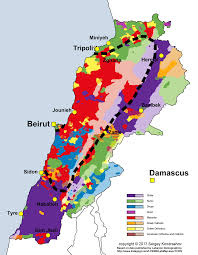Understanding Lebanon: Current Events and Their Impact

Introduction
Lebanon has recently come under the global spotlight as it faces a confluence of political, economic, and social challenges. The region’s complex history, coupled with its diverse cultural landscape, makes it a key player in Middle Eastern affairs. Understanding the current events in Lebanon is crucial, as they have significant implications not only for the Lebanese people but also for regional stability and international relations.
Current Political Landscape
As of October 2023, Lebanon is grappling with a prolonged political vacuum. The presidency has remained unfilled since Michel Aoun’s term ended in October 2022, leading to a lack of effective governance amid a deepening economic crisis. The national currency, the Lebanese pound, continues to lose value, exacerbating inflation that has rendered basic goods unaffordable for many citizens. The country’s fragmented political system, marked by sectarian divisions, has hindered efforts to form a government capable of addressing these issues.
Economic Struggles
The economic crisis in Lebanon is regarded as one of the worst in modern history, characterized by rampant inflation, skyrocketing unemployment rates, and a crumbling banking sector. According to the World Bank, approximately 80% of the population now lives below the poverty line. In response to the economic collapse, locals have engaged in protests and demonstrations demanding fundamental reforms and accountability from their leaders.
International Aid and Response
In light of these challenges, the international community has stepped in with humanitarian aid. Organizations such as the United Nations and various non-governmental organizations are working to provide essential services to those most affected by the crisis. However, many analysts argue that substantial reform is necessary for Lebanon to regain international support and rebuild its economy sustainably.
Conclusion
The current events in Lebanon serve as a stark reminder of the fragility of democratic systems and the urgent need for political reform. As the country struggles to navigate these turbulent waters, it becomes increasingly important for both local and international stakeholders to engage in proactive dialogue aimed at restoring stability. Observers forecast that without significant changes, Lebanon will continue to face escalating challenges, impacting not just its citizens but the broader Middle East region as well.








